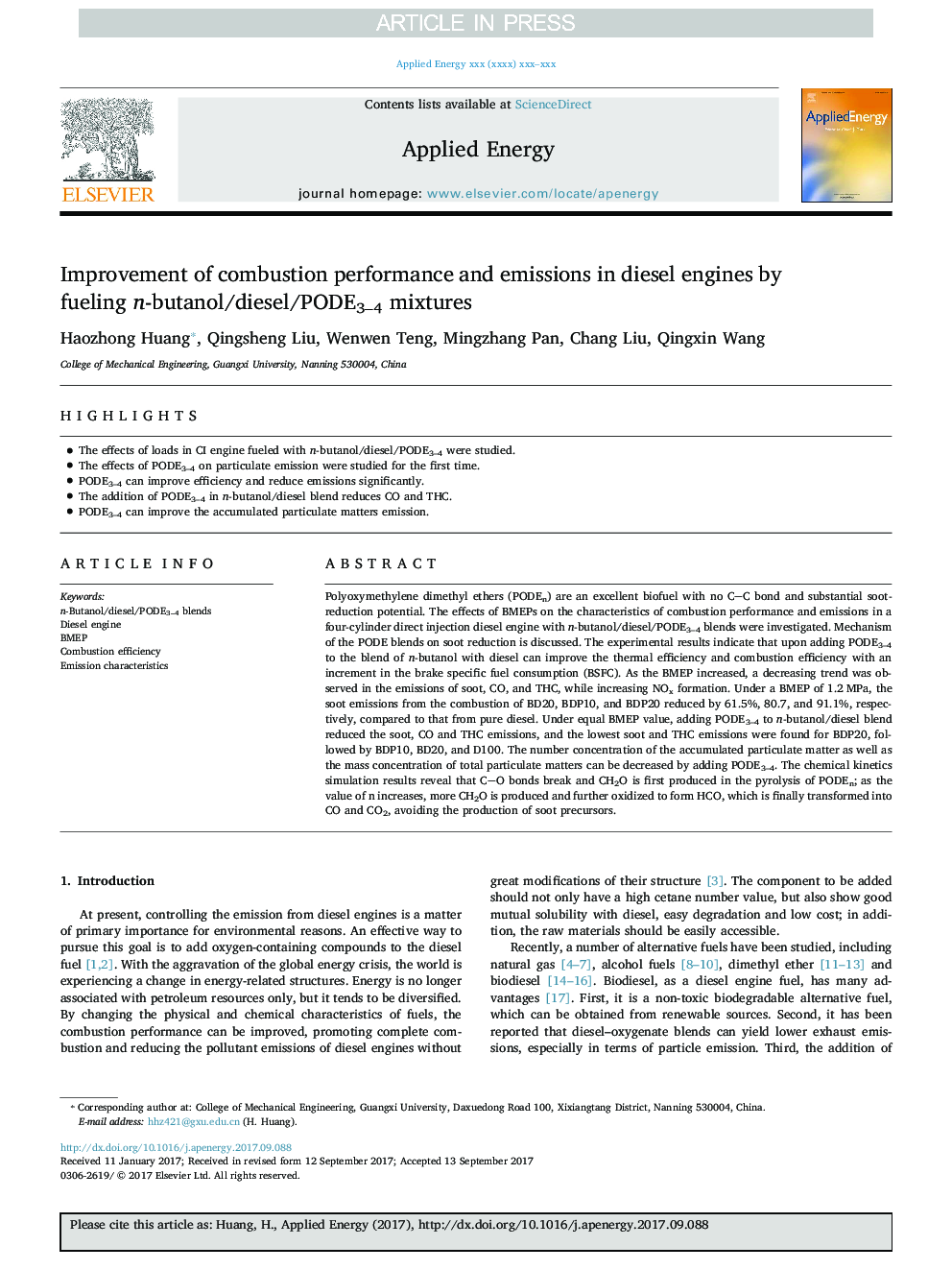| Article ID | Journal | Published Year | Pages | File Type |
|---|---|---|---|---|
| 8953424 | Applied Energy | 2018 | 11 Pages |
Abstract
Polyoxymethylene dimethyl ethers (PODEn) are an excellent biofuel with no CC bond and substantial soot-reduction potential. The effects of BMEPs on the characteristics of combustion performance and emissions in a four-cylinder direct injection diesel engine with n-butanol/diesel/PODE3-4 blends were investigated. Mechanism of the PODE blends on soot reduction is discussed. The experimental results indicate that upon adding PODE3-4 to the blend of n-butanol with diesel can improve the thermal efficiency and combustion efficiency with an increment in the brake specific fuel consumption (BSFC). As the BMEP increased, a decreasing trend was observed in the emissions of soot, CO, and THC, while increasing NOx formation. Under a BMEP of 1.2Â MPa, the soot emissions from the combustion of BD20, BDP10, and BDP20 reduced by 61.5%, 80.7, and 91.1%, respectively, compared to that from pure diesel. Under equal BMEP value, adding PODE3-4 to n-butanol/diesel blend reduced the soot, CO and THC emissions, and the lowest soot and THC emissions were found for BDP20, followed by BDP10, BD20, and D100. The number concentration of the accumulated particulate matter as well as the mass concentration of total particulate matters can be decreased by adding PODE3-4. The chemical kinetics simulation results reveal that CO bonds break and CH2O is first produced in the pyrolysis of PODEn; as the value of n increases, more CH2O is produced and further oxidized to form HCO, which is finally transformed into CO and CO2, avoiding the production of soot precursors.
Related Topics
Physical Sciences and Engineering
Energy
Energy Engineering and Power Technology
Authors
Haozhong Huang, Qingsheng Liu, Wenwen Teng, Mingzhang Pan, Chang Liu, Qingxin Wang,
